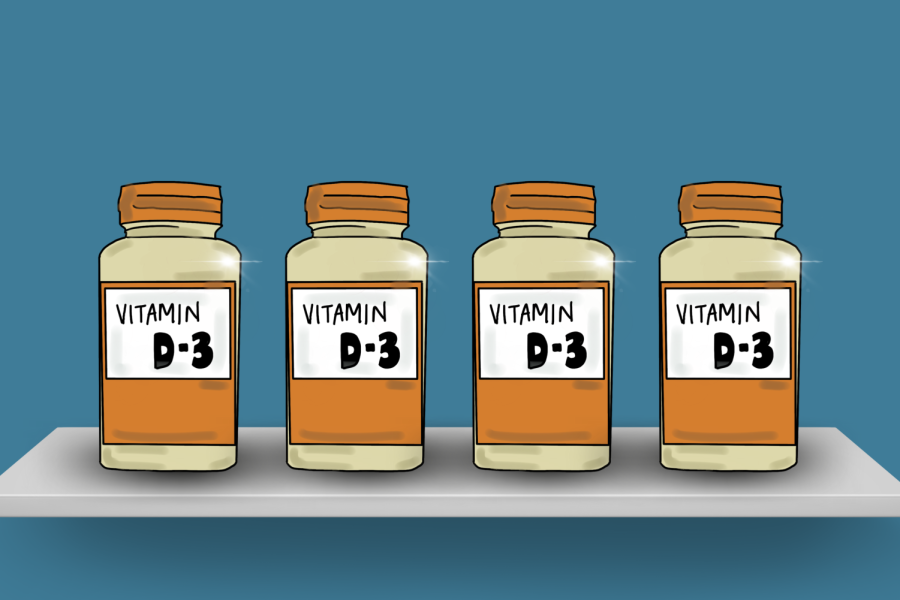Northwestern researchers find vitamin D may not reduce statin-related muscle pain
An October study by researchers from Northwestern, Harvard University and Stanford University found that vitamin D supplements may not be as effective in relieving statin-related symptoms, as previously thought.
March 8, 2023
Patients with a history of heart attacks or strokes may be prescribed statins — medications that lower cholesterol levels, like vitamin D — as a preventative measure.
However, some patients report experiencing muscle aches and pains when taking the medication, which may deter patients from taking it. To ease statin-related symptoms, physicians may encourage patients to take vitamin D supplements.
But, a recent study conducted by researchers at Northwestern, Harvard University and Stanford University found little evidence of the vitamin’s effectiveness in reducing such symptoms.
“I’ve seen some people anecdotally with very low levels of vitamin D who seem to benefit, but I thought before recommending it, we needed to have some kind of a study to give us an idea whether that recommendation held any water,” said Dr. Neil Stone, a cardiologist at Northwestern Medicine. “We couldn’t find a reason that vitamin D should be given routinely or reflexively to people if they’re on a statin.”
As the first clinical, randomized trial to examine vitamin D supplements in response to statin-associated muscle pains, or SAMS, the study is able to maximize the validity of its experimental results.
In double-blind randomized trials like this study, neither the participants nor the experimenters know whether each participant is in the treatment or control group, which Stone said increases confidence in the results.
“I look for clinical studies, not just people’s experience, because you can be misled,” Stone said. “I don’t like to speak with authority ‘til I can actually see a clinical trial that had placebos (and) controls, so we have a better idea of (whether) we (are) being fooled or not.”
Stone added large-scale studies are able to mitigate the subjective biases that may accompany anecdotal accounts.
Henry Ford Health interventional structural cardiologist Dr. Pedro Engel Gonzalez (Feinberg ’14,’17) said findings, like those in the study, that dispel a misconception hold the same weight as findings that validate popular consensus.
“Negative findings are equally informative,” Engel Gonzalez said. “It’s good to kind of dispel that notion with a well-designed study that shows that it doesn’t, so it’s very informative in that sense.”
The subjects of the study represent a subset of a larger randomized clinical trial called the Vitamin D and Omega-3 Trial, or VITAL, that included about 26,000 participants. VITAL studied the effects of vitamin D supplements on reducing risk for those without cardiovascular disease.
Dr. Mark Hlatky, the study’s lead author and a professor at Stanford, said the study utilized a placebo as a control for the pain relief caused by psychological effects of consuming a pill.
However, Stone said control participants receiving a placebo — like patients who actually received a statin medication — also complained about SAMS due to “pill anxiety.” He clarified that the study did not state causation for symptoms associated with statins.
“This study didn’t say that in 31% (of patients) statins cause muscle aches or pains,” Stone said. “It just said that it was associated with it.”
Stone said vitamin D supplements should be suggested to patients on a case-by-case basis.
As the author of the American Heart Association’s 2013 cholesterol guidelines and co-author for the 2018 guidelines, Stone said most physicians may recommend that patients experiencing SAMS stop taking statins for three weeks.
Stone added, though, that those experiencing symptoms with statins should see a healthcare professional.
Engel Gonzalez said since publishing the paper in 2013, other medications to prevent heart disease have been rolled out as alternatives to statins.
“We need to find better ways to help people take their statin medications, help them deal with any muscle symptoms that they might have,” Stone said.
Pavan Acharya contributed reporting.
Email: [email protected]
Twitter: @amittal27
Related Stories:
— Feinberg Prof. Susan Quaggin receives American Heart Association recognition
— Northwestern engineers develop new medical instruments to improve treatment for cardiac diseases
— Northwestern student leads workshop on women’s heart health


